They continued on in that manner for some time. Kazuchiyo’s days were full of learning, planning, and training—far removed from his elder brother wherever possible. He visited Hashikiri often even on the days they did not ride, bringing treats in the hopes that his new friend might look forward to seeing him. He took tea with Lady Satsumi and convinced Master Iomori to describe to him some of the topography of Kibaku, a province he had never seen. His anticipation mounted with every new morning: for the journey into unknown territory, for the challenges he might face, and especially for the reunion he had waited five long years for. He spent many nights with the vision of Yagi’s broad, bare shoulders to give him comfort.
And all along he and Gyoe’s black fox continued their game, leaving the folded poem for each other. Sometimes Amai would come soon after Kazuchiyo had laid his bait; sometimes he would not retrieve or leave the paper for days. Kazuchiyo tried more than a few times to keep a late-night vigil, but he never succeeded in catching so much as a glimpse of a shadowed figure. If he managed to stay alert until dawn, Amai would not appear, and Amai would only appear when he lost his fight with exhaustion. He began to suspect a supernatural root to the man’s prowess, or at the very least, that his carelessness in being seen that first day they met was an intentional misdirection as to his abilities.
He taunted:
Though, catching the fox
cannot be the only way
to learn its secrets.
The reply came:
What could a hunter offer
that would tempt a clever fox?
These literary liaisons were the most reckless Kazuchiyo had engaged in during his five years behind Gyoe’s walls. The promise of so many firsts fanned his courage and dulled his caution.
No juicy morsel
would be enough, no trinket,
no loyalty pledged.
Once, Amai attempted to usurp the leading verse from him.
A fox needs no loyalty.
He fends for himself alone.
But don’t you believe
that he has no currency.
He trades in secrets.
But Kazuchiyo quickly claimed it back.
For knowledge can be costly,
the pursuit of it, lethal.
Curiosity:
A weapon and a weakness
fox and hunter share.
And thus the game went until Kazuchiyo returned late to his room one night after hours at study, pleased to find a reply waiting for him. His breath tangled around his ribs as he read.
Perhaps together they can
sate this sinful desire.
He remained still for a long time, reading and rereading as his face grew hotter. The words seemed to crawl off the page toward him, like long, slender fingers stroking the inside of his wrist. Days of careful prodding and phrasing, and suddenly all he could think of was this salacious invitation. He even neglected to recall that he had first sought Amai out seeking revenge for a murdered father and brothers.
But Kazuchiyo’s youth got the better of him, and he hurried to fetch his brush and ink. By candlelight he responded:
Secrets for secrets,
whispered straight from lips to ear,
swallowed by the rain
Exasperating, but also charming, that even in his attempts to answer Amai’s blunt overture, Kazuchiyo felt the need to try and preserve the poem’s central theme. In his mind, the cohesiveness of the imagery was more evocative that way. He tucked their paper into the window, embarrassed at himself for what he considered to be a bold reply. This time, he was certain Amai would come, and that he would be ready for it. He rushed through his evening preparations and into his futon.
It was one of the longer nights of Kazuchiyo’s life. He kept his vigil through the darkest hours, watching his poem clutched by the window. He knew each verse by heart and he repeated them over in his mind, plucking from them every possible innuendo. This could not have been Amai’s aim from the start, and so what had swayed him? Was he simply so enamoured by well-staged poetry? Kazuchiyo burned with curiosity fit for the players in their ad-libbed drama as the hours wore on. With each passing moment he was more and more convinced that soon Amai would creep through the window, and he would see silver eyes flashing in the dark. The anticipation kept him simmering through the chill spring night, and he changed his posture—or rather, his pose—many times.
By dawn Kazuchiyo had lost hope, and he glared spitefully at the unclaimed message, exhausted and irritated and tantalizingly unfulfilled. An impulse to rip up the poem nearly seized him, but luckily, a servant came to fetch him first. His efforts to hide the strangely placed paper from her reminded him of how precious it was to him, and he hurried to make himself ready so that the servant would have no reason to notice it.
Lord Aritaka had summoned him to his chambers for the morning meal, and Kazuchiyo dutifully joined him. He wasted no time in stating his point. “I’ve received word that the construction is complete as scheduled,” he said. “And our men throughout the province are already on the move toward Ninari. We’ll finish our preparations and set out tomorrow.”
“Tomorrow?” Kazuchiyo echoed, straightening up. “Has it been three full weeks already?”
Aritaka smiled, which was itself not a common sight. “I’m not surprised that time has flown for you. You’ve always been studious, but these last weeks, especially so. I hope you enjoy the reprieve of travel.”
“I’m looking forward to it,” said Kazuchiyou, hurrying through the rest of his meal. It turned his stomach to have Lord Aritaka look on him so fondly.
After breakfast he visited Hashikiri in the stables, but not to ride; he only wished to bestow a few treats, even a few words of encouragement, before he would have to call on him for the journey ahead. He met with the head of the porters to ensure their supplies were prepared, even though his father would have seen to that already. In the afternoon he visited Lady Satsumi, and was surprised to find that Master Iomori had called on her already.
“Was it not your wish that we be amiable in your absence?” Iomori asked as one of her assistants poured out tea for them. “I am making an effort.”
“She’s making an effort,” said Satsumi with a dubious slant of her brow. “This is the most hospitality I’ve received from this woman in years.”
“If I can take credit for that, I’m honored,” said Kazuchiyo. “I believe you have more in common than you might see.”
Satsumi accepted her tea, but waited until all three of them had been served before taking a sip. “What we have in common is you,” she said, a note of seriousness beneath her teasing. “And our interest in your well-being. I’m sure that Master Iomori has offered you some good luck trinket for your journey already, but I have one of my own to give you.”
She reached behind her and then pulled forward a wooden box, plainly decorated, which she slid toward him. Kazuchiyo took a polite sip of his tea before devoting his full attention to the gift. He opened the lid to reveal a tanto: a short, sturdy dagger in a handsome wooden sheath. The first character of his name was set into the grip in gold leaf. Kazuchiyo drew his fingertip over it, goose bumps rising along his skin.
“It’s beautiful,” he said, lifting the weapon from its casing. He drew the blade and touched it to his fingernail to test its expert sharpness. “Thank you, Lady Satsumi.”
He slid the blade back into its sheath and looked to her, unable to hide the question in his face. As timely as the gift was, he had to wonder at her choice of label: it might have been more appropriate to decorate the dagger with their family seal, or a character from his surname. Even his full given name would have made more sense. But one character alone—peace, ironic for a weapon—seemed a particular choice, hinting at intentions he could not yet work out.
“You’re very welcome,” replied Satsumi, and though she was smiling, her eyes were grim. “I hope that you don’t find need to use it too soon.”
“It would not make much sense as a gift if he didn’t use it,” said Iomori, dispelling the brief moment of tension. “I, for one, hope he finds an opportunity.”
Satsumi shot her an exaggerated glare, and the pair of them traded dry barbs throughout the rest of Kazuchiyo’s visit.
When Kazuchiyo returned to his room, the poem was where he had left it. He unfolded it to confirm that Amai had not taken and returned it, but only his laest verse stared back at him. Trying to quell his disappointment, he returned the poem to its place and left again.
He spent the remainder of the evening out on the courtyard wall, playing his flute. To some it may have appeared that he was offering a final serenade to his home of many years, but the truth was he only wanted Amai to know he was not in his chamber, should he want to retrieve their poem. He told himself that he had no real concern that Amai’s delay was a rejection of any kind—he had on occasion taken days to make his appearance, and more importantly, Amai himself had been the one to change the tenor of their wordplay to begin with. But come morning he would depart, with no telling how long he would be gone. If Lord Aritaka was eager for warfare with the neighboring Kibaku province, a campaign could easily stretch for weeks or months. Certainly Amai would realize as much, and know that they had very little time left to enjoy their correspondence. But by nightfall, the poem had not moved.
Determined not to waste another night’s rest, especially considering the long day that would follow, Kazuchiyo put himself to bed and resolved not to think of Amai at all. He found sleep that was restless and dreams that frustrated. By morning he had resolved not to even look to the window. If Amai discovered his acceptance of the invitation too late to act upon it, then it served him right to remain just as unsatisfied for months on end.
Of course, curiosity got the better of him, and when he discovered the poem finally gone, his heart beat hard with elation, and also, regret. It would be a long time before he could know the response. Or so he assumed, at the time.

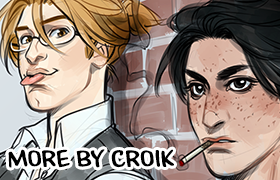
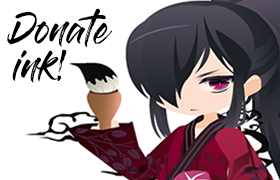
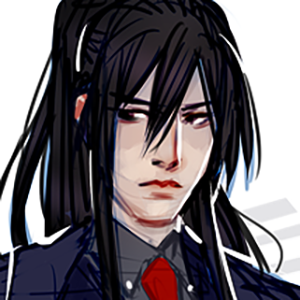
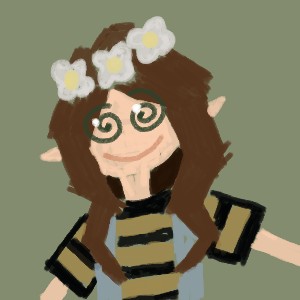







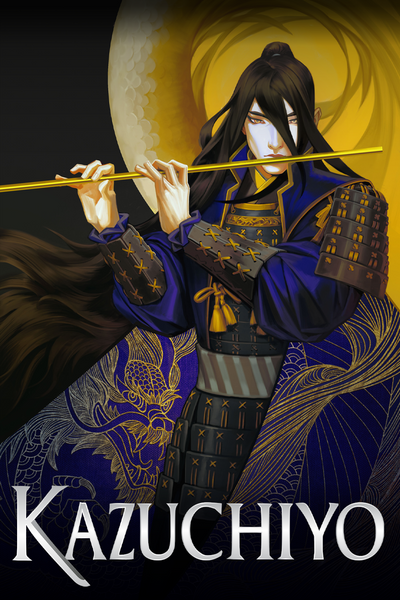
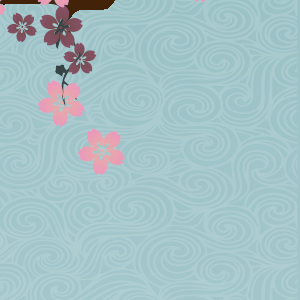
Comments (10)
See all